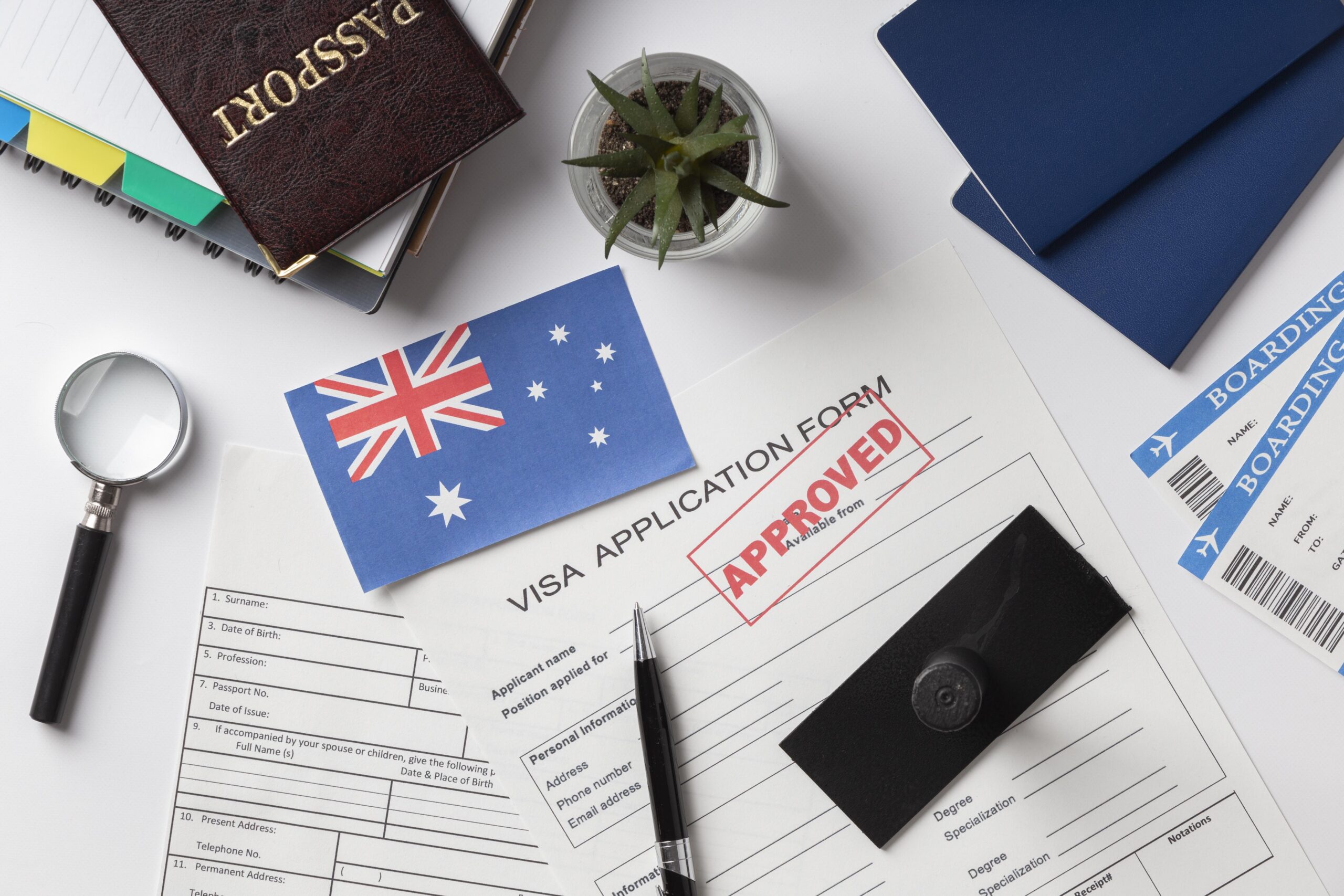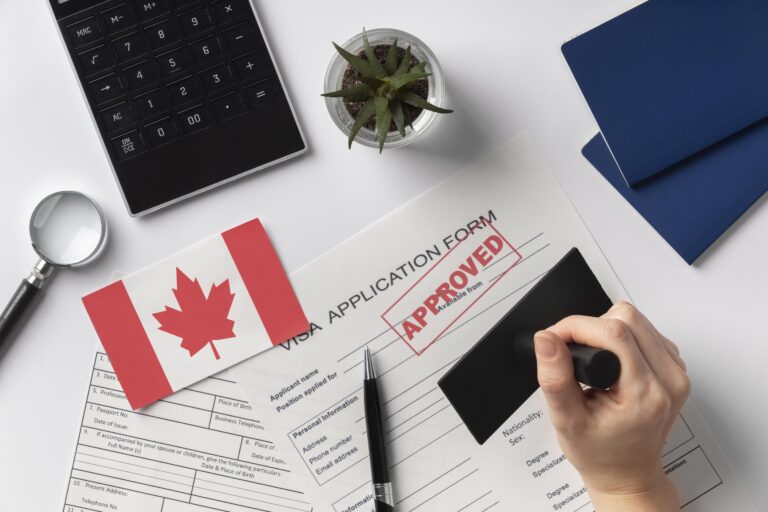Embarking on a journey to the United Kingdom opens doors to world-class education, diverse career opportunities, rich cultural experiences, and historic landmarks. For Moroccan citizens, this journey begins with successfully navigating the UK’s structured yet complex immigration system. Whether your ambitions include studying at prestigious British universities, advancing your career in the UK’s dynamic job market, reuniting with family, or simply exploring the stunning landscapes from the Scottish Highlands to the Cornish coast, securing the right visa is your crucial first step.
This comprehensive guide has been meticulously crafted to demystify the UK visa application process for Moroccan nationals in 2025. We’ll walk you through the latest regulatory updates, detailed application procedures, essential documentation requirements, and strategic insights to maximize your chances of approval. With Brexit transitions fully implemented and post-pandemic policies stabilized, understanding the nuanced requirements for your specific travel purpose has never been more important.
From digital application innovations to biometric requirements, this resource provides the authoritative information you need to approach your UK visa application with confidence and clarity. Let’s begin your journey to the United Kingdom with the right foundation for success.
Types of UK Visas Available for Moroccan Citizens
The UK offers various visa categories that cater to different purposes of travel. Here are the main visa options available for Moroccan nationals:
- Visitor Visas
The Standard Visitor visa is designed for Moroccans visiting the UK for tourism, visiting family or friends, business activities, or short-term study (up to 6 months).
Key features:
- Valid for up to 6 months
- Multiple entry options available
- No right to work
- No public funds access
- Application fee: £115 for a standard visitor visa (2025 rate)
Specialized visitor categories include:
- Marriage Visitor visa – for those getting married or entering a civil partnership in the UK
- Permitted Paid Engagement visa – for professionals invited to undertake specific paid work in the UK for up to 1 month
- Student Visas
For Moroccan students planning to study in the UK, there are two main options:
Student visa (formerly Tier 4):
- For courses longer than 6 months
- Requires sponsorship from a licensed UK educational institution
- Permits limited work during term time and full-time work during holidays
- Application fee: £363 (2025 rate)
- Also requires payment of the Immigration Health Surcharge: £776 per year
- For courses up to 6 months (or 11 months for English language courses)
- No work permitted
- Application fee: £200 for 6 months; £400 for 11 months (English language courses only)
- Work Visas
Several pathways exist for Moroccans seeking to work in the UK:
Skilled Worker visa (formerly Tier 2):
- For qualified professionals with a job offer from a UK sponsor
- Minimum salary requirements apply (usually at least £26,200 or the “going rate” for your occupation)
- Path to settlement after 5 years
- Application fee: £719-£1,423 depending on circumstances
- Plus Immigration Health Surcharge: £776 per year
- For qualified doctors, nurses, and healthcare professionals
- Lower fee structure than standard Skilled Worker visa
- Must have a job offer from the NHS, social care sector, or organizations providing services to the NHS
- Application fee: £280-£551
- Plus Immigration Health Surcharge: £776 per year
- For recognized leaders or emerging talents in academia, research, arts and culture, or digital technology
- Requires endorsement from a recognized UK body
- No job offer required
- Path to settlement after 3-5 years
- Application fee: £676 plus £524 for endorsement
- Family Visas
Moroccans with family members who are British citizens or settled persons can apply for:
- For spouses, partners, children, parents, and other dependent relatives
- Financial requirements apply (minimum income threshold of £29,000 for partners as of 2025)
- Path to settlement after 5 years
- Application fee: £1,846 for partners and parents; £1,538 for children
- Plus Immigration Health Surcharge: £776 per year
Long-term and Settlement Visas
For those looking to settle in the UK permanently:
Indefinite Leave to Remain (ILR):
- Available after 5 years of legal residence in most categories
- Requires passing the Life in the UK test and meeting English language requirements
- Application fee: £2,885 (2025 rate)
- Available 12 months after obtaining ILR in most cases
- Requires passing the Life in the UK test and meeting English language requirements
- Application fee: £1,580 (2025 rate)
UK Visa Application Process for Moroccan Citizens
Step-by-Step Application Process
Step 1: Determine the Right Visa Type
Before beginning your application, carefully determine which visa category best suits your purpose for traveling to the UK. The UK government’s visa finder tool can help you identify the appropriate visa.
Step 2: Check the Visa Requirements
Each visa type has specific requirements regarding:
- Documentation
- Financial requirements
- Length of stay
- Application timing
Check the latest requirements on the UK government’s official website.
Step 3: Complete the Online Application
All UK visa applications from Morocco begin online:
- Go to the UK visa application website
- Create an account
- Select your visa type
- Fill in all required information accurately
- Pay the application fee online
- Schedule an appointment at your nearest VAC
Important tip: Save your application reference number as you’ll need it for all correspondence.
Step 4: Prepare Your Supporting Documents
The specific documents required will depend on your visa type, but typically include:
- Current passport with at least 6 months validity and blank pages
- Previous passports (if available)
- Completed and signed application form
- Recent passport-sized color photographs meeting UK specifications
- Financial evidence (bank statements, payslips, etc.)
- Proof of accommodation in the UK
- Travel itinerary
- Evidence of ties to Morocco (employment, property, family)
- Any specific documents for your visa category
Document preparation tips:
- Organize documents in the order listed on your checklist
- Include English translations for any documents not in English or Welsh
- Make copies of all documents (both original and translation)
- Do not staple documents together
Step 5: Attend Your Biometric Appointment
At your scheduled appointment at the VAC, you will:
- Provide your fingerprints
- Have your photograph taken
- Submit your supporting documents
- Pay for any additional services (if applicable)
VAC appointment tips:
- Arrive 15 minutes before your appointment time
- Bring your appointment confirmation
- Bring your original documents
- Be prepared for security checks
Step 6: Track Your Application
After your appointment, you can track your application status online using the reference number provided. TLS Contact provides tracking services through their website.
Step 7: Collect Your Passport and Decision
When a decision has been made:
- You’ll be notified by email
- You can collect your passport from the VAC or have it delivered by courier (if you paid for this service)
- Check your passport for the visa sticker or decision letter
Detailed Documentation Requirements by Visa Type
Documents Required for All Applications
Regardless of the visa type, all Moroccan applicants must provide:
- Valid passport: Must be valid for at least 6 months beyond your intended stay
- Completed application form: Printed and signed
- Biometric information: Fingerprints and a digital photograph
- Tuberculosis (TB) test certificate: From an approved test center if staying longer than 6 months
- Proof of English language proficiency: For most visa types (except visitors) – typically IELTS or equivalent
- Application fee payment receipt
Visitor Visa Specific Documents
For Standard Visitor visas, Moroccan applicants should also provide:
- Detailed travel itinerary: Including flight bookings (or reservations), accommodation details
- Financial evidence: Bank statements for the last 6 months, showing sufficient funds for your stay
- Employment evidence: Employment contract, pay slips, letter from employer stating your position, salary, length of employment, and approved leave
- Business details: If self-employed, business registration documents and tax returns
- Purpose of visit evidence: Invitation letters, conference details, tourist itineraries, etc.
- Family and economic ties to Morocco: Evidence that you intend to return (property deeds, family certificates, etc.)
- UK host details: If being sponsored, a letter of invitation including their immigration status
Student Visa Specific Documents
Moroccan students applying for a Student visa should additionally provide:
- Confirmation of Acceptance for Studies (CAS): Issued by your UK education provider
- Academic qualifications: Certificates and transcripts mentioned in your CAS
- Financial evidence: Bank statements showing you can support yourself and pay your course fees
- Parental/legal guardian consent: If you’re under 18
- ATAS certificate: For certain sensitive subjects (if applicable)
Work Visa Specific Documents
For work visas, Moroccan applicants typically need:
- Certificate of Sponsorship: From your UK employer
- Qualification evidence: Degree certificates, professional qualifications
- Experience evidence: CV, reference letters from previous employers
- Salary evidence: Proving you meet the minimum salary threshold
- English language certification: Usually IELTS at level B1 or above
- Criminal record certificate: For certain occupations
Family Visa Specific Documents
Moroccans applying to join their family members need:
- Relationship evidence: Marriage certificates, birth certificates, legal adoption papers
- Sponsor’s status evidence: Copy of their British passport or residence permit
- Financial evidence: Proof that your sponsor meets the income threshold (pay slips, bank statements)
- Accommodation evidence: Tenancy agreement, property deed, or letter from property owner
- English language certificate: Usually IELTS at level A1 or above (for partners)
- Genuine relationship evidence: Photos together, communication records, joint responsibilities
Common Reasons for UK Visa Refusals from Morocco
Understanding common refusal reasons can help Moroccan applicants avoid pitfalls:
Insufficient Financial Evidence
One of the most common reasons for refusal is inadequate proof of financial means. UK authorities need to be confident that:
- You can support yourself during your stay
- You won’t need to work illegally or access public funds
- You have strong economic ties to Morocco that will encourage your return
How to avoid this issue:
- Provide 6 months of bank statements showing consistent income
- Explain any large deposits clearly
- Show evidence of stable employment or business ownership
- Provide a detailed budget for your UK stay
Lack of Strong Ties to Morocco
UK visa officers need to be convinced that you will return to Morocco after your visa expires.
How to address this concern:
- Provide evidence of family relationships in Morocco
- Submit property ownership documents
- Include employment contracts or business ownership papers
- Show evidence of future commitments in Morocco
Incomplete or Inconsistent Documentation
Minor inconsistencies or missing documents can lead to refusal.
Prevention strategies:
- Double-check all dates and information across all documents
- Explain any gaps in employment or study
- Provide clear translations of all non-English documents
- Follow the document checklist exactly
Previous Immigration Issues
Prior visa refusals, overstays, or breaches of immigration rules in the UK or other countries can affect your application.
How to handle this:
- Disclose all previous refusals honestly
- Provide a clear explanation addressing the previous issues
- Show how your circumstances have changed since the refusal
Insufficient Travel History
Limited travel history can be a concern for first-time applicants.
How to mitigate this:
- If possible, build a travel history to other countries first
- Provide stronger evidence in other areas (finances, ties to Morocco)
- Consider using a registered immigration advisor for your application
Tips for a Successful UK Visa Application from Morocco
Preparation and Planning
- Start early: Begin preparation at least 3 months before your intended travel date
- Research thoroughly: Understand the exact requirements for your specific visa category
- Create a document checklist: Make a personalized list based on your circumstances
- Schedule strategically: Avoid peak application seasons (summer months, December-January)
Document Presentation
- Organize professionally: Use a folder with labeled sections
- Include a cover letter: Explain your purpose of visit, itinerary, and intention to return to Morocco
- Provide translations: Any document not in English must have a certified translation
- Include a document inventory: Create a numbered list of all submitted documents
Application Form Tips
- Be consistent: Ensure all information matches your supporting documents
- Be truthful: Never provide false information
- Be complete: Answer all questions fully; don’t leave sections blank
- Review thoroughly: Check multiple times before submission
- Save a copy: Keep a duplicate of your entire application
Financial Documentation Advice
- Stable history: Show at least 6 months of consistent financial history
- Explain anomalies: Provide context for any unusual deposits or withdrawals
- Multiple sources: Include various types of financial evidence (savings, salary, property)
- Avoid fresh funds: Don’t suddenly deposit large sums just before applying
Post-Application Best Practices
- Track your application: Use the online tracking system regularly
- Respond promptly: If additional information is requested, provide it immediately
- Stay contactable: Ensure your phone and email are constantly monitored
- No travel plans: Avoid booking non-refundable tickets until your visa is approved
Using Professional Services for UK Visa Applications
When to Consider Professional Help
Consider using a professional visa service or immigration advisor if:
- You have a complex immigration history
- You’ve had previous visa refusals
- Your case has unusual circumstances
- You’re applying for a complex visa category
- You’re not confident in your English language ability for completing forms
Choosing a Reputable Service
If seeking professional assistance:
- Check accreditation: Use only OISC (Office of the Immigration Services Commissioner) registered advisors
- Verify reviews: Research online reviews and testimonials
- Compare services: Different providers offer varying levels of support
- Clarify fees: Understand exactly what services are included in the price
- Confirm experience: Choose advisors with specific experience with Moroccan applications
Recommended services with presence in Morocco:
- UK Visa and Immigration Services (UKVIS)
- Legal firms with immigration departments
- Immigration consultants registered with the British Embassy
Working with an Immigration Advisor
When working with a professional:
- Provide all information honestly
- Keep copies of all documents
- Ask questions if you don’t understand something
- Remain involved in the process
- Be wary of guarantees or promises that seem too good to be true






